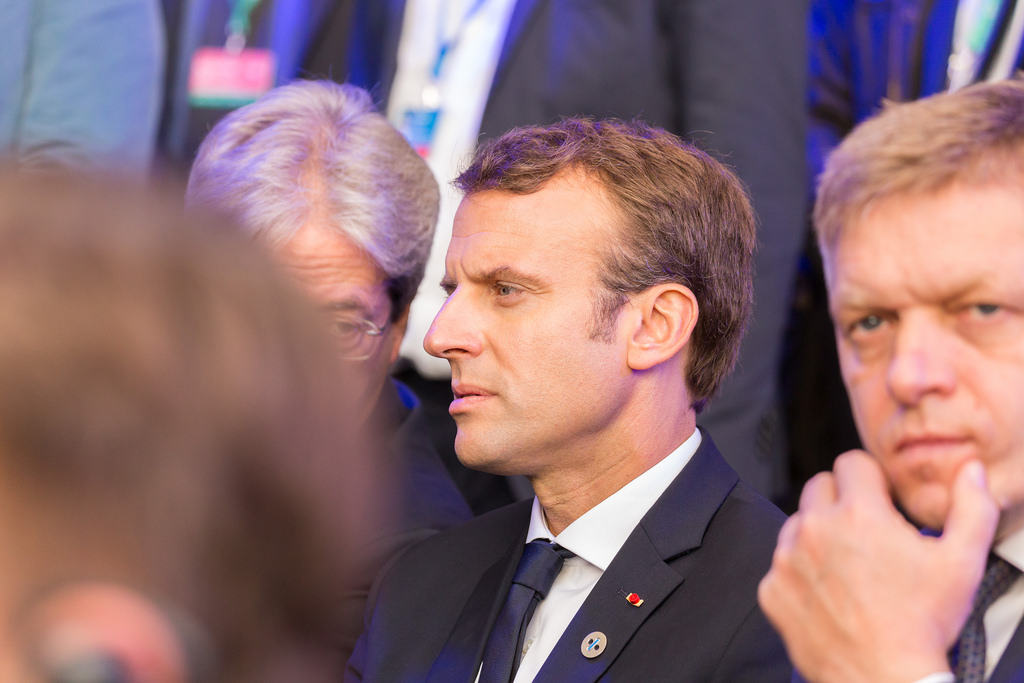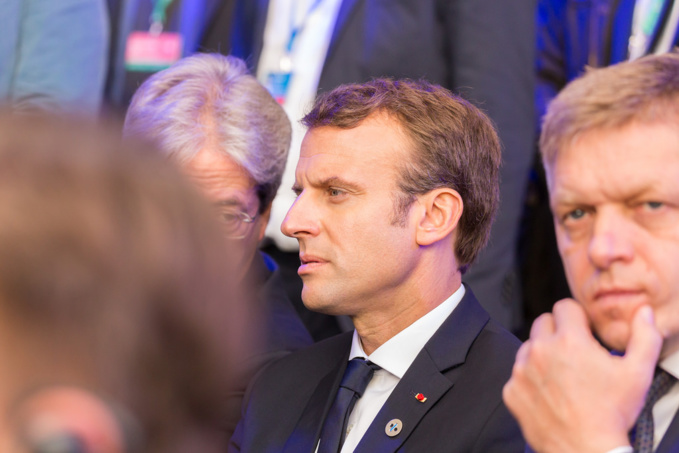Using presidential decrees, he quickly pushed through a number of new labor laws, simplifying the procedures for dismissal and hiring. To sweeten the pill, he allocated $ 18 billion for retraining workers for the next five years and added an amendment extending unemployment insurance to the growing segment of French self-employed and small business owners. He is lowering taxes on luxury, income from capital and compensation to employees and generally "is making everything simpler".
How far is Macron ready to go? He told Forbes that next year he intends to put an end to the infamous French 30% tax on "going out", which is imposed on entrepreneurs who are trying to withdraw money from the country. This tax makes France unattractive for foreign business, and for the French serves as an argument to open their companies abroad. That is, Macron is moving in a direction diametrically opposed to the policy of US President Trump. He is passionate about American companies that are expanding in other countries, and promises subsidies to those who remain. "People are free to invest where they want," says Macron. - If you want to make a marriage, you should not explain to your partner that "if we get married, we will not be able to divorce." This is not the best way to keep a loved one. So I am for freedom to marry and freedom to divorce. "
Such a policy is very time-consuming. Already during the life of the current generation, France will overtake Germany and become the most populous country in Europe, and the French are one of the most educated peoples on the continent, besides, they have a mass of elite engineering institutes. "France has extremely profitable positions in terms of growth," says Jonas Prising, head of the recruiting company ManpowerGroup. And competitors make mistakes. Moving to Brexit, the UK continues to deepen the biggest self-inflicted damage in modern economic history, and Merkel is politically disarmed due to weakening of her coalition. And although Trump boasts of the strong US economy, his protectionism is closer to the Smoot-Hawley Tariff Act of 1930 than to the successes of Reagan and Clinton.
The effect of macroeconomic actions is already noticeable. In January, as soon as the labor laws were reformed, French retail giant Carrefour and the PSA automotive group announced a reduction of 4,600 jobs. Of course, strikes followed. But foreign companies have already announced about $ 12.2 billion in new investments, Macron economic advisers say. Disney is allocating $ 2.4 billion for the expansion of Parisian Disneyland, German SAP is investing $ 24 billion in research centers and start-up accelerators. Facebook and Google are looking for 150 specialists in artificial intelligence in Paris. The situation with startups is also improving. While uncertainty over Brexit undermines London's venture capital, in 2017 French funds collected most of all investments in Europe for the first time, according to Dealroom. In January, there was more French startups than other foreigners represented at the Consumer Electronics Show in Las Vegas.
Prospects are still important. In 2017, there were only three start-ups in France, valued above $ 1 billion, while there were 22 of them in the UK, and 105 - in the United States. Decades of anti-entrepreneurship culture were not in vain. But all the ingredients for change are there. "Countries that we consider slow are now moving 10 times faster than we are," said John Chambers, a former head of Cisco who sent $ 200 million to French startups before leaving office in 2015. He believes that now France has the "right leader". An investor from London, Saul Klein, who recently invested in the French subsidiary of the successful British startup Deliveroo, notes that his office is a stone's throw from the Eurostar railway: "Paris is closer to us now than Edinburgh or Dublin."
source: forbes.com
How far is Macron ready to go? He told Forbes that next year he intends to put an end to the infamous French 30% tax on "going out", which is imposed on entrepreneurs who are trying to withdraw money from the country. This tax makes France unattractive for foreign business, and for the French serves as an argument to open their companies abroad. That is, Macron is moving in a direction diametrically opposed to the policy of US President Trump. He is passionate about American companies that are expanding in other countries, and promises subsidies to those who remain. "People are free to invest where they want," says Macron. - If you want to make a marriage, you should not explain to your partner that "if we get married, we will not be able to divorce." This is not the best way to keep a loved one. So I am for freedom to marry and freedom to divorce. "
Such a policy is very time-consuming. Already during the life of the current generation, France will overtake Germany and become the most populous country in Europe, and the French are one of the most educated peoples on the continent, besides, they have a mass of elite engineering institutes. "France has extremely profitable positions in terms of growth," says Jonas Prising, head of the recruiting company ManpowerGroup. And competitors make mistakes. Moving to Brexit, the UK continues to deepen the biggest self-inflicted damage in modern economic history, and Merkel is politically disarmed due to weakening of her coalition. And although Trump boasts of the strong US economy, his protectionism is closer to the Smoot-Hawley Tariff Act of 1930 than to the successes of Reagan and Clinton.
The effect of macroeconomic actions is already noticeable. In January, as soon as the labor laws were reformed, French retail giant Carrefour and the PSA automotive group announced a reduction of 4,600 jobs. Of course, strikes followed. But foreign companies have already announced about $ 12.2 billion in new investments, Macron economic advisers say. Disney is allocating $ 2.4 billion for the expansion of Parisian Disneyland, German SAP is investing $ 24 billion in research centers and start-up accelerators. Facebook and Google are looking for 150 specialists in artificial intelligence in Paris. The situation with startups is also improving. While uncertainty over Brexit undermines London's venture capital, in 2017 French funds collected most of all investments in Europe for the first time, according to Dealroom. In January, there was more French startups than other foreigners represented at the Consumer Electronics Show in Las Vegas.
Prospects are still important. In 2017, there were only three start-ups in France, valued above $ 1 billion, while there were 22 of them in the UK, and 105 - in the United States. Decades of anti-entrepreneurship culture were not in vain. But all the ingredients for change are there. "Countries that we consider slow are now moving 10 times faster than we are," said John Chambers, a former head of Cisco who sent $ 200 million to French startups before leaving office in 2015. He believes that now France has the "right leader". An investor from London, Saul Klein, who recently invested in the French subsidiary of the successful British startup Deliveroo, notes that his office is a stone's throw from the Eurostar railway: "Paris is closer to us now than Edinburgh or Dublin."
source: forbes.com



















